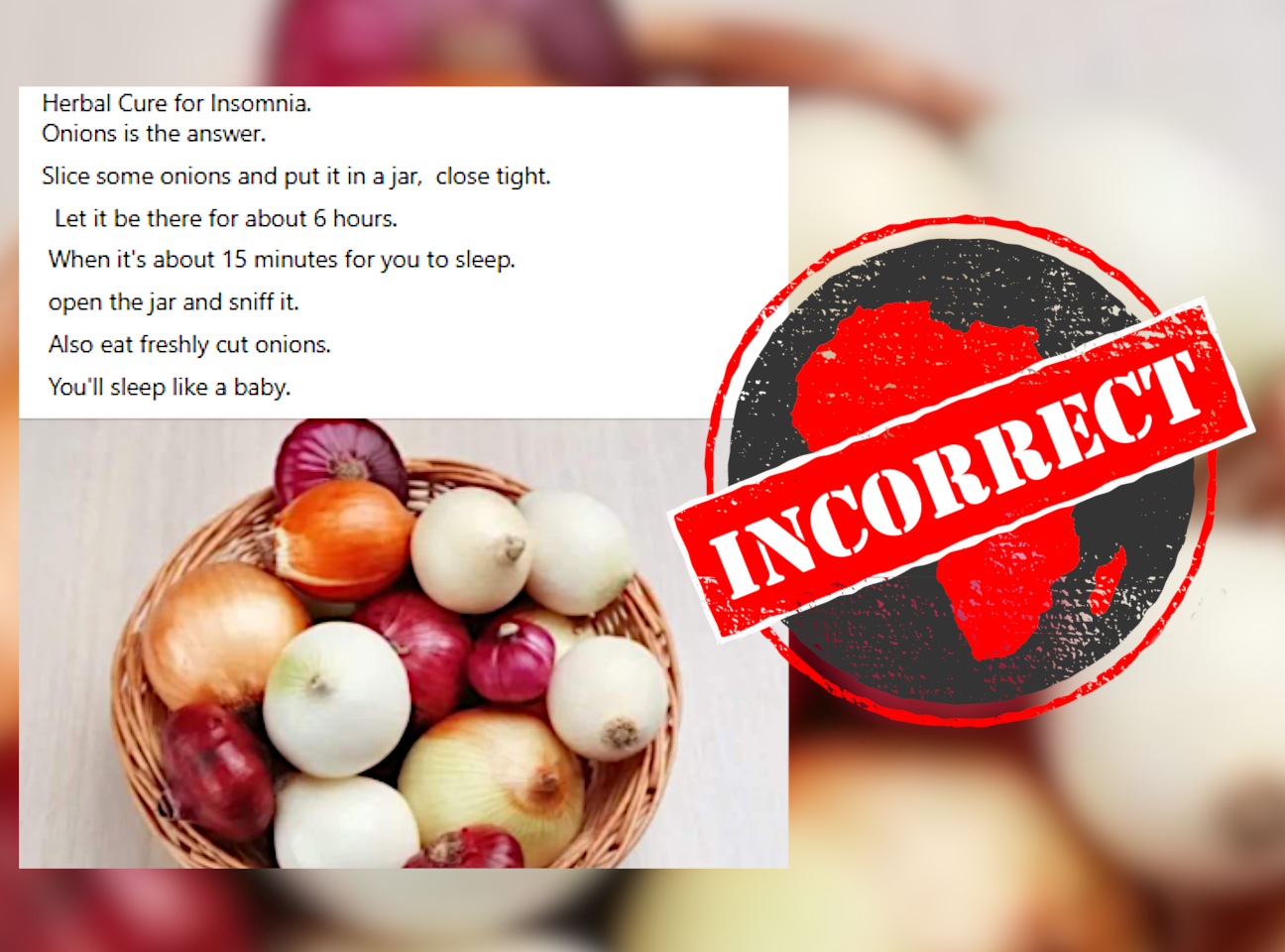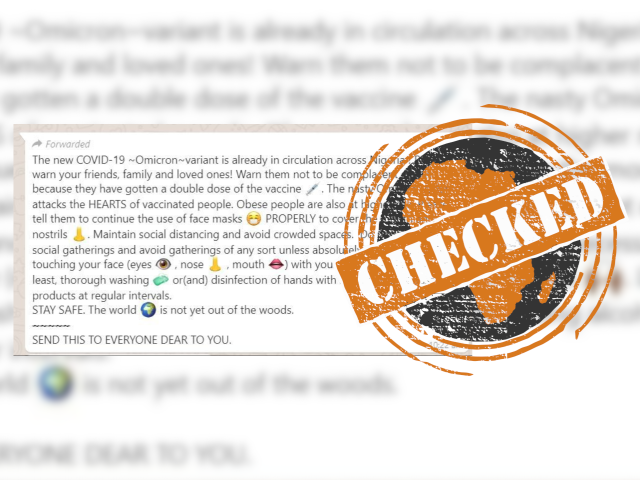“Onions is the answer” as a “Herbal Cure for Insomnia”, claims a Facebook post from Nigeria.
It reads: “Slice some onions and put it in a jar, close tight. Let it be there for about 6 hours. When it's about 15 minutes for you to sleep. open the jar and sniff it. Also eat freshly cut onions. You'll sleep like a baby.”
Will sniffing the vapour of onions kept in a jar, or eating freshly cut onions, cure insomnia?

Stress or underlying illness
Insomnia is a sleep disorder in which people struggle to fall asleep, stay asleep or both. It’s the most common type of sleep disorder, according to the American Psychiatric Association.
Before anyone is diagnosed with insomnia, it must occur at least three nights a week for at least three months and cause problems at work or school, or impair a person’s ability to function in other important areas of their life.
Jesse Otegbayo, a professor of medicine at the University of Ibadan in western Nigeria, told Africa Check that the Facebook post’s claim was wrong.
“There is no scientific basis for it,” he said. “The substances in onions – such as minerals and vitamins – will not induce sleep.”
He added that insomnia could be as a result of stress or an underlying illness. The best way to get the right treatment is to see a doctor who can diagnose the root cause and prescribe the right treatment.
Republish our content for free
For publishers: what to do if your post is rated false
A fact-checker has rated your Facebook or Instagram post as “false”, “altered”, “partly false” or “missing context”. This could have serious consequences. What do you do?
Click on our guide for the steps you should follow.
Publishers guideAfrica Check teams up with Facebook
Africa Check is a partner in Meta's third-party fact-checking programme to help stop the spread of false information on social media.
The content we rate as “false” will be downgraded on Facebook and Instagram. This means fewer people will see it.
You can also help identify false information on Facebook. This guide explains how.





Add new comment